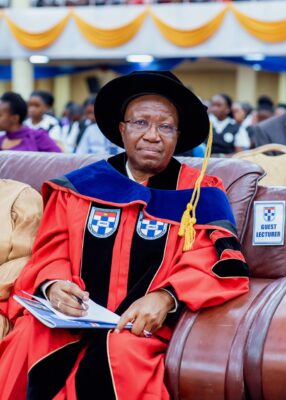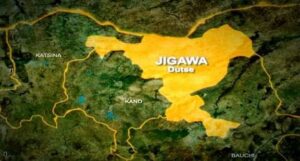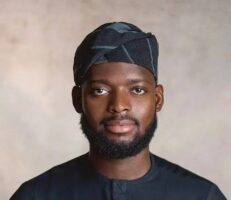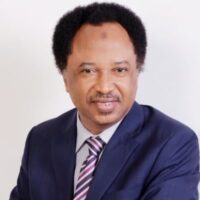Former President of the Nigerian Bar Association (NBA),Wole Olanipekun (SAN), has called for the drafting of an entirely new, homegrown Constitution to replace the 1999 Constitution, which he described as a “military albatross” that no longer serves the country’s democratic aspirations.
Olanipekun made the call while delivering the 13th Convocation Lecture of Afe Babalola University, Ado-Ekiti (ABUAD).
The lecture, titled “Nigeria Yesterday, Today and Tomorrow: Imperative of a Sober and Definitive Recalibration,” examined Nigeria’s constitutional, political, and governance challenges.
He urged the National Assembly to immediately suspend further amendments to the 1999 Constitution, insisting that the document, imposed by the military regime of General Abdulsalami Abubakar, was never subjected to popular consultation or referendum.
“The National Assembly should, for the time being, stay action on any ongoing or future amendment to the 1999 Constitution,” he said. “This Constitution needs a complete overhaul — a negotiated document that will pave the way for a new social order.”
The legal luminary said Nigeria’s foundational problems stem largely from a flawed constitutional structure that over-centralises power at the federal level while weakening the states and undermining true federalism.
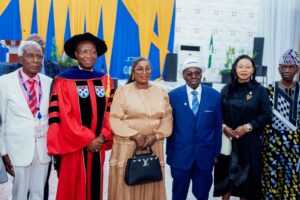
He faulted provisions such as the Land Use Act, the arbitrary creation of local governments, and the unitarisation of the judiciary, which he said collectively stifle equity, justice, and sustainable development.
Olanipekun proposed a transitional phase leading up to 2031, during which the country should collate and harmonise past constitutional reports and conferences to produce a truly people-oriented document.
“During the transitional period, elections will still hold and the winners will serve their terms, but with the understanding that come May 29, 2031, Nigeria will operate under a new Constitution, a new structure, and a fresh dawn,” he added.
He also advocated for the inclusion of a national referendum as a key democratic mechanism to decide major national questions, including the structure of the National Assembly and governance model.
Citing examples from Italy, Britain, and Equatorial Guinea, as well as Nigeria’s own 1961 and 1963 referendums, Olanipekun said the process would reaffirm the constitutional principle that sovereignty ultimately belongs to the people.
According to him, referendums are not alien to Nigeria’s political evolution, recalling the 1961 plebiscite that allowed Southern Cameroons to choose between Nigeria and Cameroon, and the 1963 referendum that led to the creation of the Mid-Western Region.
” What then is the way out? Some within this audience might have been stunned by my earlier suggestion for a transitional period between now and May 29, 2031; a suggestion or recommendation that is not only made in good faith but out of the realities of the conundrum we have
found ourselves.
” It is now time for the federating units to take charge of the reconfiguration, redefinition, repair, restructuring, remodeling and reengineering of Nigeria for stability in all forms, including but not limited to security, constitutional architecture, form or type of government (whether presidential or parliamentary), etc. It is the Referendum, rather than the National Assembly that will decide whether or not, Nigeria needs a National Assembly, and if yes, whether full or part-time membership; their tenure, remunerations, et al.
” In other words, this National Assembly cannot act as that Referendum since one cannot be a judge in his own cause. It is the federating units that will make arrangements for the Referendum being suggested; how it will hold, through which means it will hold, what will be the parameters or undertakings, etc,” the legal icon said.
On security, he criticised Nigeria’s centralised policing system, describing it as inconsistent with federal principles. He urged the adoption of state and community policing, arguing that governors cannot be called “chief security officers” without control over security agencies in their states.
Turning to politics, Olanipekun lamented the decline of ideology-driven political parties, contrasting today’s fluid alliances with the structured, value-based politics of the First and Second Republics.
He praised President Bola Ahmed Tinubu for his political resilience, saying his refusal to succumb to pressure during his years in opposition helped preserve Nigeria’s multiparty democracy.
“Had Tinubu succumbed to harassment and intimidation, Nigeria might have become a one-party state long ago,” Olanipekun said, recalling his experience as Tinubu’s lead counsel during the Code of Conduct Tribunal trial.
He urged political parties to return to ideological consistency, uphold internal democracy, and recruit leaders based on conviction rather than convenience.
Founder of ABUAD, Aare Afe Babalola (SAN), commended Olanipekun for what he called a “soul-lifting and patriotic lecture,” promising to forward a copy of the address and a letter to President Tinubu and the National Assembly for urgent consideration.

